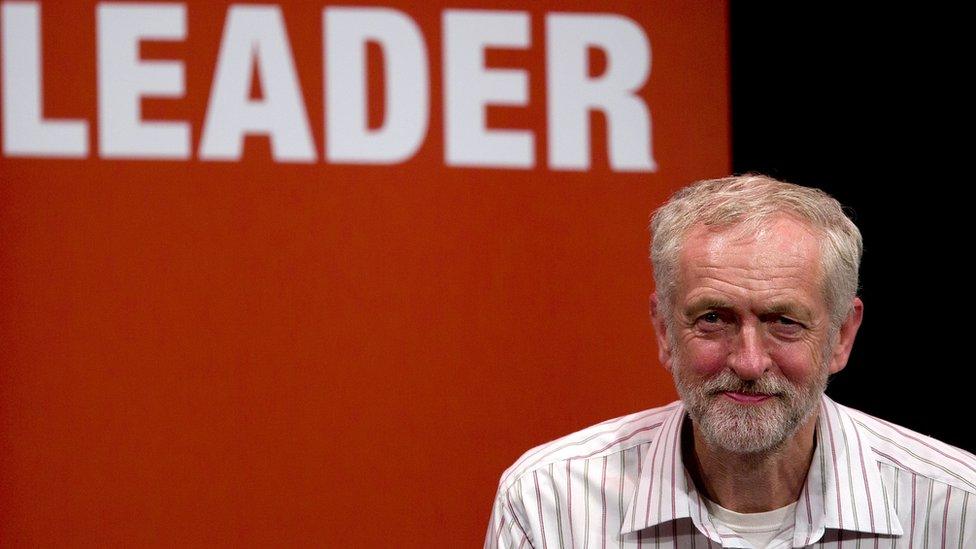Labour peer calls for party to run in Northern Ireland elections
- Published
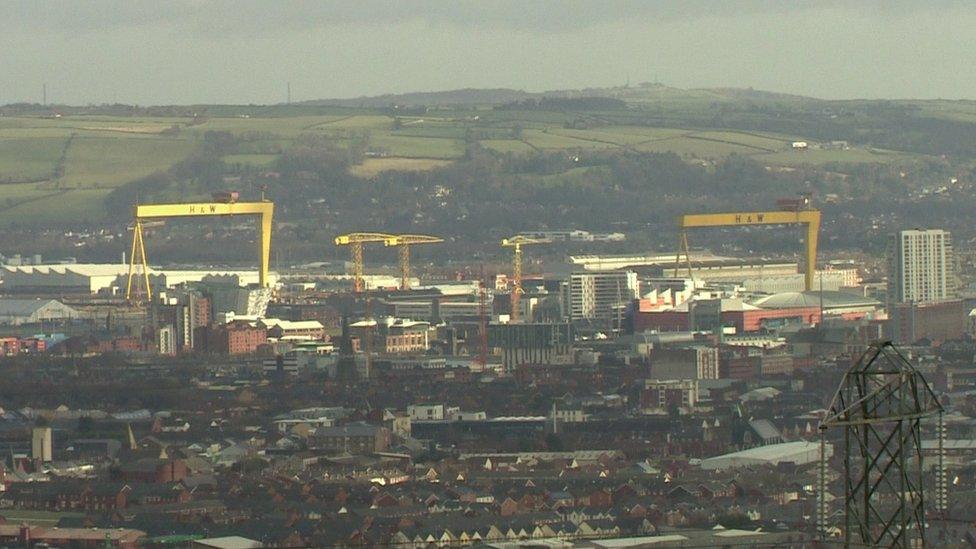
Labour Party members say they want to contest elections in Northern Ireland "to help move beyond sterile sectarian politics"
The only member of the Labour Party in Northern Ireland who sits in parliament has made a strong call for the party to allow candidates to run in Northern Ireland Assembly and council elections.
Baroness May Blood has told the BBC's The View programme that she would think about resigning the Labour whip if the issue is not resolved.
People in Northern Ireland have been allowed to join the party since 2003.
But it does not allow candidates to stand in Northern Ireland.
Labour Party members in Northern Ireland took out an advertisement in the Belfast Telegraph on Thursday setting out the case they are making to the party's ruling body.
They say they want to run candidates in elections "to help move beyond sterile sectarian politics".
Opportunity
Baroness Blood is one of several hundred people to put their name to a petition.
She said she was "very annoyed" that candidates are not allowed to stand in Northern Ireland.
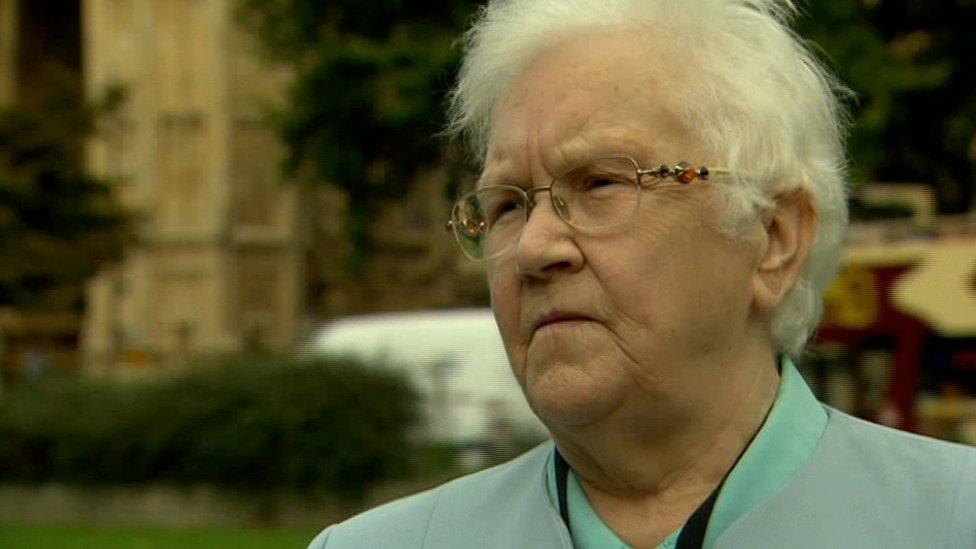
Baroness Blood said she would consider resigning the Labour whip if they party denied candidates the chance to stand in Northern Ireland
"I've been Labour all my life, and I think people should be given the opportunity to have proper politics," she said.
Asked if she would resign the whip over the matter, she said: "That's something I'd have to think about, but it's a possibility."
Labour's ruling body, the national executive committee, is currently carrying out a review on whether the party should stand in elections in Northern Ireland.
It is committed to reviewing the policy at least once in every parliament.
The process involves consultation with Northern Ireland party members, as well as the Social Democratic and Labour Party (SDLP), the Irish Labour Party and trade unions.
In the past, the reasons the party has given for preventing members from standing in Northern Ireland have included Labour's relationship with the SDLP.
Declared
It can be argued that Northern Ireland played a key role in the birth of the Labour Party.
In the early 20th Century, labour candidates polled well in Belfast.
109 years ago, the city played host to a significant meeting.
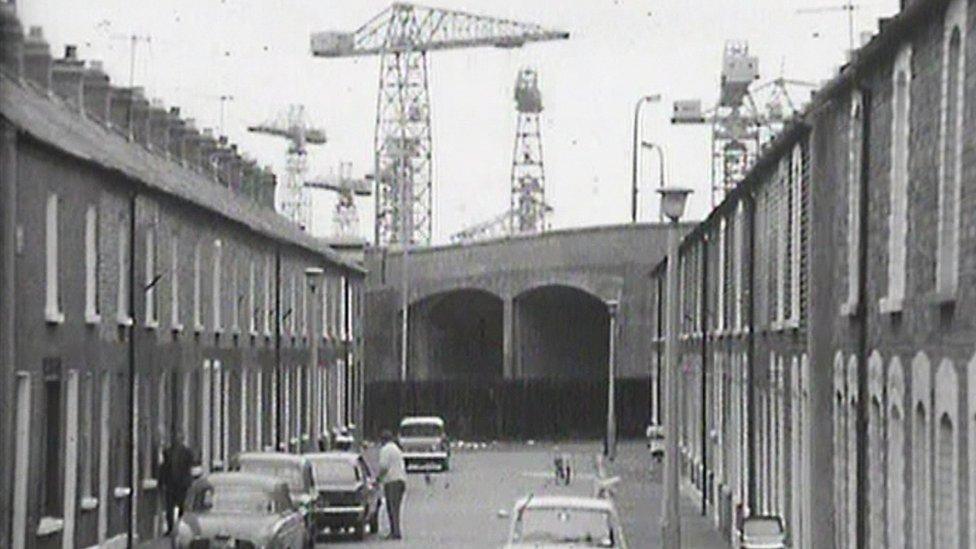
Industrial areas of Belfast were a heartland for the labour movement
Historian Henry Bell said: "It was in Belfast that the Labour Party called itself the Labour Party.
"Previously it was called the Labour Representative Committee, because it represented a number of different organisations.
"But at a meeting in this city in January 1907, it declared it was a political party, that it was going to fight seats, and not just go into coalition with the Liberals."
The strong link between labour activists here and the national party was broken several years later.
Heartlands
But the labour movement continued and politicians standing under the Labour banner scored electoral successes, particularly in the 1920s, 1940s and 1960s.
Their heartlands were industrial areas of Belfast, where factories and the shipyard employed thousands of people.
In north, west and east Belfast, Labour candidates could sometimes score upwards of 30% of the vote.
In the early 1960s, Labour members of the Stormont parliament formed the official opposition.
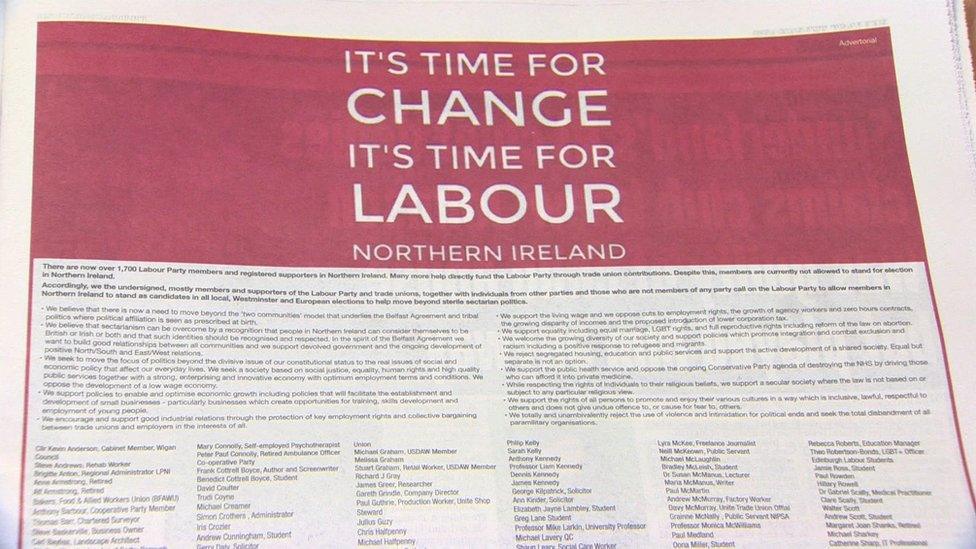
Labour members have signed a petition calling for the party to stand candidates in Northern Ireland
But the onset of the Northern Ireland Troubles hit their vote badly.
For many years, the Labour Party resisted membership requests from people in Northern Ireland.
But in 2003, a vote at its conference opened the way for Northern Ireland activists to join.
Go-ahead
Now the party is pushing hard to be allowed to field candidates.
Its membership has almost quadrupled recently, with 1,800 members and supporters now in Northern Ireland.
They believe it is unlikely they will get the go-ahead to field candidates in the Northern Ireland Assembly election.
But they have a shortlist of more than 20 potential candidates, just in case.
If they do not win the battle against their own party hierarchy this time around they will keep campaigning, with a focus on the council elections in 2019.
- Published17 September 2015
